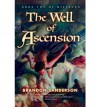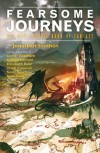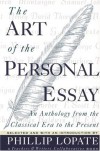Mining the Depths
I'll read almost anything and love what captures my imagination. Best of all is responding to books in the larger cultural sense, loving or loathsome. Literature should have a place in the wider world.
And I'm another GoodReads refugee.
 I don’t hate Esko, but I do find him distasteful. I don’t like his relationship with Katerina, because she’s just not there — as a character, she simply can’t support Esko’s obsession. Esko’s story is told in close, close third person, but all Rayner can do is repeat endlessly how fascinated by Katerina Esko is. But she has no particular quality of any kind that really seems interesting enough. And given the backstory Rayner offers? It seems somewhat obscene. I should care about her, for that very reason. I hope that isn’t why she has such a back story, all for the plot point.Is it because Rayner wants to show the horror of war? Just how bad things got? It feels unreal, though, it feels like a device. Katerina doesn’t really show any signs of being effected, or at least Esko can’t see them. Perhaps that’s what the story is about. Creepy-stalker Esko’s obsesson whith a woman who is ultimately shallow. Or whatever her true story, Esko can’t isn’t seeing her, he’s seeing this fantasy of wealth that he built as a poor abandoned child. Still, I’the text hasn’t really given me any reason to truly belive that, and I can’t quite figure out why.It’s a ‘telling’ sort of book though, because Esko is a thoughtful, analytic guy, or I assume he must be, because that’s all he does: think at the audience and analyses every little thing unless he comes to an actual insight that might actually move the plot, such as it is, too soon. Esko's narration also feels terribly passive, and yet he is a driving force in his own life. As reactive as his thoughts are, it reads like things simply happen to him instead.Needless to say, I find this a very disappointing novel.And I’m not sure architecture works in-text. On paper, in two dimensions, all that’s left is the visual, and at least Rayner doesn’t start giving dimensions. But there’s only so many ways to talk about buildings, and none of them are particularly visual, unless you are already familiar with the architecture. It might be easier for these digressions to be from the perspective of a character who doesn’t know architecture, because he or she could offer concrete detail, not knowing the jargon. But Esko only talks in jargon, and reminds the audience again and again about how awesome modern architecture is, but I don’t see it and I don’t care.Rayner has also failed at giving me any particlualy strong impression of early 1900s Finland, or 1920s New York. Sure there are props as he talks about the atmosphere, I can’t feel it, or sense it. Because when the character is just telling the reader how he feels, as apposed to what’s there giving him those feelings, it’s hard for a reader to get the same impression. Still, I hope there's something to tie all this together at the end. I'm okay with protagonists I don't like, though usually because there is at least a side character who's interesting: Esko has several, though Rayner keeps killing them off. But I love the idea behind this novel, Finnish history, architecture, even a character growing beyond obsessions. But it seems to be a story about fate, and a narrator too genre-savvy to even make the journey interesting.Part 3, Chapter 13, we've suddenly jumped into Katerina's perspective. This is page 277 and shouldn't be here. The only reason it is here, is because Rayner wants Katerina to prove how awesome Esko is, I presume. It doesn't add anything, although now at least I feel a little more sorry for her. But I'm unhappy with the way Rayner writes about her rape, it's just for the traumatic backstory, to give her a reason to not fall into Esko's arms. This is her description:...at night her dreams were still sometimes hellishly peopled by the men who'd burst into the house that night in Petersburg. At night she experienced all over again the rape, their foul breath on her face, their ramming inside her, the murder of her mother, her grandmother, and her father.It's just a summary of what she told the crowd back in Finland. And she does so with even more inappropriate distance. There's no pain there, it's too clinical, and not in a coping mechanism kind of way. Despite Rayner's intention though, it does make me feel more sorry for Katerina, not because it's a plot device, but because of what Esko's pursuit ought to be doing to her. He won't take no for an answer; he's as willing to take control from her as her rapists did. She literally has to run away from him.According to the back cover, Esko is going to be accused of murdering Katerina's husband, and I can't wait to see him destroy himself, I only wish he'd do it faster. Because I've finally found a theme to this book, and it's that Esko ruins everyone's lives. The book is structured by the various groups Esko joins: the village, the Finnish architects, the New York riveters, etc. And he leaves a group after someone dies, and that's the only time he joins another. He abandons people--he hasn't even thought about his father figure in Finland, nor his former wife even though she saved him. This book has no soul. There's no greater disappointment to me than having to force myself to finish a book like this. I don't mind abandoning books as much. The only reason I'm even trying is the investment of pages, and like [b:Sepulchre|498835|Sepulchre (Languedoc Trilogy, #2)|Kate Mosse|http://ecx.images-amazon.com/images/I/61ytk-6cO7L._SL75_.jpg|1027521], the reason it's taking longer than it should is because it manages to offend me at least once a paragraph. This isn't quite as shallow, and it is better written, so it gets one more star.I still have 100 pages.Finished. The last 100 pages could best be described as sensational. As in tabloid. Shocking for the sake of shock, or perhaps I was just so numbed to Esko and the story that I just didn't care. That's why the book failed for me, because Esko as a character never convinced me to care. And the end was just a little too pat.
I don’t hate Esko, but I do find him distasteful. I don’t like his relationship with Katerina, because she’s just not there — as a character, she simply can’t support Esko’s obsession. Esko’s story is told in close, close third person, but all Rayner can do is repeat endlessly how fascinated by Katerina Esko is. But she has no particular quality of any kind that really seems interesting enough. And given the backstory Rayner offers? It seems somewhat obscene. I should care about her, for that very reason. I hope that isn’t why she has such a back story, all for the plot point.Is it because Rayner wants to show the horror of war? Just how bad things got? It feels unreal, though, it feels like a device. Katerina doesn’t really show any signs of being effected, or at least Esko can’t see them. Perhaps that’s what the story is about. Creepy-stalker Esko’s obsesson whith a woman who is ultimately shallow. Or whatever her true story, Esko can’t isn’t seeing her, he’s seeing this fantasy of wealth that he built as a poor abandoned child. Still, I’the text hasn’t really given me any reason to truly belive that, and I can’t quite figure out why.It’s a ‘telling’ sort of book though, because Esko is a thoughtful, analytic guy, or I assume he must be, because that’s all he does: think at the audience and analyses every little thing unless he comes to an actual insight that might actually move the plot, such as it is, too soon. Esko's narration also feels terribly passive, and yet he is a driving force in his own life. As reactive as his thoughts are, it reads like things simply happen to him instead.Needless to say, I find this a very disappointing novel.And I’m not sure architecture works in-text. On paper, in two dimensions, all that’s left is the visual, and at least Rayner doesn’t start giving dimensions. But there’s only so many ways to talk about buildings, and none of them are particularly visual, unless you are already familiar with the architecture. It might be easier for these digressions to be from the perspective of a character who doesn’t know architecture, because he or she could offer concrete detail, not knowing the jargon. But Esko only talks in jargon, and reminds the audience again and again about how awesome modern architecture is, but I don’t see it and I don’t care.Rayner has also failed at giving me any particlualy strong impression of early 1900s Finland, or 1920s New York. Sure there are props as he talks about the atmosphere, I can’t feel it, or sense it. Because when the character is just telling the reader how he feels, as apposed to what’s there giving him those feelings, it’s hard for a reader to get the same impression. Still, I hope there's something to tie all this together at the end. I'm okay with protagonists I don't like, though usually because there is at least a side character who's interesting: Esko has several, though Rayner keeps killing them off. But I love the idea behind this novel, Finnish history, architecture, even a character growing beyond obsessions. But it seems to be a story about fate, and a narrator too genre-savvy to even make the journey interesting.Part 3, Chapter 13, we've suddenly jumped into Katerina's perspective. This is page 277 and shouldn't be here. The only reason it is here, is because Rayner wants Katerina to prove how awesome Esko is, I presume. It doesn't add anything, although now at least I feel a little more sorry for her. But I'm unhappy with the way Rayner writes about her rape, it's just for the traumatic backstory, to give her a reason to not fall into Esko's arms. This is her description:...at night her dreams were still sometimes hellishly peopled by the men who'd burst into the house that night in Petersburg. At night she experienced all over again the rape, their foul breath on her face, their ramming inside her, the murder of her mother, her grandmother, and her father.It's just a summary of what she told the crowd back in Finland. And she does so with even more inappropriate distance. There's no pain there, it's too clinical, and not in a coping mechanism kind of way. Despite Rayner's intention though, it does make me feel more sorry for Katerina, not because it's a plot device, but because of what Esko's pursuit ought to be doing to her. He won't take no for an answer; he's as willing to take control from her as her rapists did. She literally has to run away from him.According to the back cover, Esko is going to be accused of murdering Katerina's husband, and I can't wait to see him destroy himself, I only wish he'd do it faster. Because I've finally found a theme to this book, and it's that Esko ruins everyone's lives. The book is structured by the various groups Esko joins: the village, the Finnish architects, the New York riveters, etc. And he leaves a group after someone dies, and that's the only time he joins another. He abandons people--he hasn't even thought about his father figure in Finland, nor his former wife even though she saved him. This book has no soul. There's no greater disappointment to me than having to force myself to finish a book like this. I don't mind abandoning books as much. The only reason I'm even trying is the investment of pages, and like [b:Sepulchre|498835|Sepulchre (Languedoc Trilogy, #2)|Kate Mosse|http://ecx.images-amazon.com/images/I/61ytk-6cO7L._SL75_.jpg|1027521], the reason it's taking longer than it should is because it manages to offend me at least once a paragraph. This isn't quite as shallow, and it is better written, so it gets one more star.I still have 100 pages.Finished. The last 100 pages could best be described as sensational. As in tabloid. Shocking for the sake of shock, or perhaps I was just so numbed to Esko and the story that I just didn't care. That's why the book failed for me, because Esko as a character never convinced me to care. And the end was just a little too pat.
Currently reading
The Well of Ascension
Progress:
325/781 pages
Steelheart
Progress:
26 %
Fearsome Journeys: The New Solaris Book of Fantasy
Progress:
57/395 pages
Dracula
The Guermantes Way
The Art of the Personal Essay: An Anthology from the Classical Era to the Present
Mad Ship
Pitch Like A Girl: How A Woman Can Be Herself And Still Succeed
A History of Pi
English Creek












